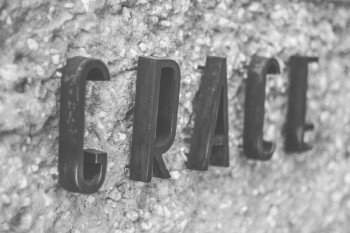Theological education, even on a good day, is a hard job. It always has been. Today, however, theological educators in Western cultures are facing a new challenge. Deep biblical knowledge and interpretation are not widely seen—even by pastors—as having a transformative effect on the way people live. This popular disconnect between knowing your Bible and the way you live your life is leading us toward a crisis in theological education.
Christians in Western cultures mostly think that to “know your Bible” means one of two things: either you know some abstract, historical system of doctrine really well, or you can ace Bible trivia quizzes (“For 10 points, which of these prophets was a judge?”). Neither of these models of what it means to know your Bible, though, means much for how you’ll live your life tomorrow morning.
Beyond Bible Trivia
Older models of theological knowledge connected knowing to doing in tangible ways. Augustine, for example, writes that the purpose of studying the Bible is to learn to love God and neighbor. He even says embracing an intellectually incorrect interpretation of Scripture that nonetheless leads you to love God and neighbor is like going the long way round on a journey since you missed the shorter road. It’s best to take the correct path, but if you get to the right destination in the end, that’s what matters most.
Maybe we don’t want to take things quite that far. But the point is that loving God and neighbor, not intellectual rectitude, is the ultimate goal. Theological knowledge used to be judged not by what kind of Bible trivia quizzes you could ace but by what kind of life you lived.
Loving God and neighbor, not intellectual rectitude, is the ultimate goal. Theological knowledge used to be judged not by what kind of Bible trivia quizzes you could ace but by what kind of life you lived.
How we got into this mess is a long and complicated story. One of the biggest problems is the 19th-century German research university model of education, with its emphasis on abstraction, fact/value distinction, and scholarly specialization. That model is now the only model of what counts as “knowledge” in the Western world, and theological schools are not immune from its dominance. Theological educators are professionally evaluated and promoted based on whether they produce scholarly books and articles (judged by the 19th-century German research university model of “scholarship”) much more than on whether they produce disciples.
Niagara Falls Situation
While the causes are many and complex, there’s no doubt that theological education is widely undervalued. Some are shocked when I suggest most pastors don’t place a high value on theological knowledge. But it’s hard to find churches whose leaders are willing to make sacrifices for the sake of developing such knowledge—at least, beyond the very basics like the Trinity and salvation by faith.
I recently got a shocking reminder of this problem from a friend who was working on a project linking theological schools to local churches. It was a great model with a lot of potential to benefit both the churches and the schools, and a pilot version had gone well. The major problem was that my friend was having trouble finding churches large enough that saw any value in working with theological schools.
It’s hard to overstate the urgency of this problem for both churches and theological schools. For the church, our standard of discipleship to Jesus is anemic largely because our theological knowledge is anemic. From sexuality to the workplace to politics, cultural standards of what is true, what is good, and what counts as success or human flourishing are only modestly corrected—if corrected at all—by exposure to biblical standards.
For theological schools, however, this crisis is existential. Evangelical theological schools may look like they’re in reasonably robust health compared to mainline and Roman Catholic schools. But that’s only because the crisis hit the others sooner. Their barrels are just a little further down the Niagara, toward the falls; in about five years, maybe ten, our schools will be where theirs are now.
To put it in business terms, which sacrifice cultural refinement for the sake of clarity, the business model of theological education is broken. The customers—from potential students to churches to other organizations that hire those students—aren’t convinced the product is worth the investment of time and money needed. This is partly because the investment is very large, but more because the customer doesn’t see the value of the product.
Quiet Reformation Underway
To meet this challenge, theological education must reconnect the treasures of the theological knowledge tradition, which they steward, to the challenges people face in the world today. What does “knowing your Bible” have to do with the way we do our jobs on Monday morning? With the way we carry out our responsibilities in the home? With questions in the public square that impact everyone’s lives and sense of identity on a daily basis?
In this task we are swimming upstream against a culture that doesn’t want theology to transform its way of life, against potential students who don’t think knowing the Bible in a deep way makes much difference, and (of course) against all the ordinary trials and tribulations that have always attended higher education. Tinkering around the edges isn’t going to be sufficient. To escape captivity to those 19th-century German rationalists, we’ll have to rethink our educational model from scratch.
The good news is that hundreds of theological educators are already leading the way. A quiet reformation has been burgeoning in Western theological education for some time, as the nature and urgency of the challenge become clear to more people. It’s a generational task, but the generation to undertake it is already here. Before long I expect the reformation won’t be quiet any more.
Editor’s Note: Join 150 theological educators, including Greg Forster, at Karam Forum this March 2 to 3 at Trinity International University in Deerfield, Illinois. Leading Bible and theology scholars like Kevin Vanhoozer, Darrell Bock, Amy Sherman, Tom Nelson, and Chris Brooks will help you train a new generation of Christians who follow King Jesus by loving their neighbors in daily tasks.



